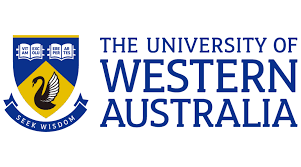University of Western Australia: Whole-of-organisation approach vital in Indigenous cancer care
New research from The University of Western Australia has highlighted the importance of a whole-of-organisation approach in improving health outcomes for Aboriginal and Torres Strait Islander cancer patients.
Putting Policy into Practice: How Three Cancer Services Perform against Indigenous Health and Cancer Frameworks is the first study to compare the performance of tertiary cancer services against two national Australian best practice guidelines.
Lead author, researcher Emma Taylor from UWA’s WA Centre for Rural Health, said with cancer one of the leading causes of death for Indigenous Australians, it’s time to focus attention on how cancer services are best delivered to this section of the population.
“The National Aboriginal and Torres Strait Islander Cancer Framework and the National Safety and Quality Health Service (NSQHS) User Guide for Aboriginal and Torres Strait Islander Health are key national policy documents that aim to reduce health disparities,” Ms Taylor said.
Emma TaylorImage: Researcher Emma Taylor from WA Centre for Rural Health.
“By comparing these frameworks with a small number of services which had been identified as providing culturally safe cancer care, we hoped to capture what’s working and what’s not in terms of policies and programs so that the learnings could be passed on across Australia.”
Interviews were conducted with 35 hospital staff, both Indigenous and non-Indigenous, and eight Indigenous people affected by cancer from three services, with these analysed and scored according to the seven priorities of the Cancer Framework and the six actions of the NSQHS User Guide.
Ms Taylor said that although the services used in the comparison were identified as ‘high performing’ in their care for Indigenous cancer patients, they were found to have different strengths and weaknesses when analysed through the dual lenses of the Cancer Framework and User Guide.
“Indigenous people face a raft of challenges in engaging with the health system, including fear or mistrust of mainstream health services, a lack of cultural understanding shown by clinicians, experiences of racism and logistical difficulties in accessing treatment services,” Ms Taylor said.
“We showed that if services are to reduce inequalities in cancer mortality, they need to look beyond their traditional biomedical treatment focus and target structural inequities by improving accessibility to their services and providing care that is culturally safe and person-centred.
“Long-term and sustainable change requires an understanding of Aboriginal culture, as well as a willingness to learn, strong leadership and the involvement of Indigenous staff in implementation efforts and the ongoing monitoring of strategies.
“By identifying the areas where services are doing well and highlighting what activities they are performing in those areas, we hope this will benefit other organisations wishing to improve their performance and build equity in cancer prevention, treatment and care.”

